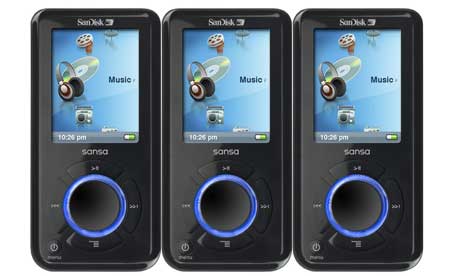It is rare for me to contemplate new gadgetry without a pang of regret for the early passing of Douglas Adams.
Column “Dork Talk” published on Saturday 6th September 2008 in The Guardian “Dork Talk” – The Guardian headline.
I miss him both as friend and technology guru. For years, we played with digital toys together, swapping software and finding new ways to make our systems crash. Back in the 80s, we had acoustic coupler modems, capable of what we thought was a dazzling half-duplex 1,200 bps. In those pre-internet days (or, more accurately, pre-ISP days), we communicated with each other’s Macs via these modems: plugging telephone receivers into the rubber-grommeted holes of the coupler, we spoke into the Mac’s inbuilt microphone and waited for it to emerge from the other end as (broadly) intelligible speech. It took us a week to fine-tune the system, but in the end we could hold a conversation. We triumphantly told Douglas’s wife, Jane, who asked why we didn’t get rid of the computers, the acoustic couplers, the miles of wiring and the discs. “It’s called a telephone conversation,” she said. Doh.

Douglas never lived to see his beloved Apple rise from near-collapse in the 90s to today’s position. He died a few months before the arrival of the first generation of iPods; I missed his response to them dreadfully, as I have every new arrival in the digital sphere since. Some Christians have What Would Jesus Do? as a motto; I have What Would Douglas Think?
I’m looking now at the SanDisk Sansa e2x0 (x=memory option, from 2Gb to 8Gb), a new media player from the flash data card people. Playing with it over the week, my mind has been turning on one of Douglas’s theories. When asked if everyone should become “computer literate”, he harked back to a 30s Boy’s Wonder Book Of Science in which one article extolled the virtues of the new generation of brushed DC motors and how they were going to revolutionise the world. There were diagrams of a “house of the future”, a huge electric motor in the attic with a series of belts driving everything from the washing machine to the rotisserie. The piece concluded that, as a result, everyone would be very handy with DC motors – “electric motor literate”. What its authors failed to predict was that such motors would indeed revolutionise the home, but instead of one big master, there’d be dozens of small motors, invisible to the user. They are still with us, in our washing machines, computers, cars – even in the first six generations of iPod. We don’t have to be motor literate, however – they are just there.
Douglas argued the same with computer literacy. We used to believe that homes would have one great computer controlling music, lights and heating. In fact, we have them in our tumble-driers and thermostats, cars and coffee machines. But we don’t have to be computer literate any more than we need to know how a car engine works. All we have to learn is how to negotiate the traffic.
The Sansa is good, but it is hard to get excited about an audio video player, even a cheap one with such a good battery life (its most impressive feature). Most of us have them built into our phones, and we’ll soon have them in our cameras, fridges and cars. It will be interesting to see how Apple copes with the diminishing excitement of new iPods. Meanwhile the SanDisk is fine. Small, good value, better sound reproduction than an iPod – ideal for DRM free music. But surely it won’t be long before MP3 players go the way of the electronic calculator: from eye-popping novelty to consumer essential to gift from the estate agent to dusty, solar-powered in a drawer.
Being flash memory, of course, the Sansa doesn’t have an electric motor. Shame: Douglas and I would have enjoyed taking it apart and proving our electric motor illiteracy.
Acronyms of the week
BPS Bits per second. In 1985, 1,200 bps was fast; your internet connection is millions of times faster.
ISP Internet service provider. In the 80s, only academe and the military provided internet service. The arrival of the first commercial ISPs ushered in the internet age.
DRM Digital rights management. System that ‘locks’ music or video bought on the internet so it can be played only by the authorised buyer.



